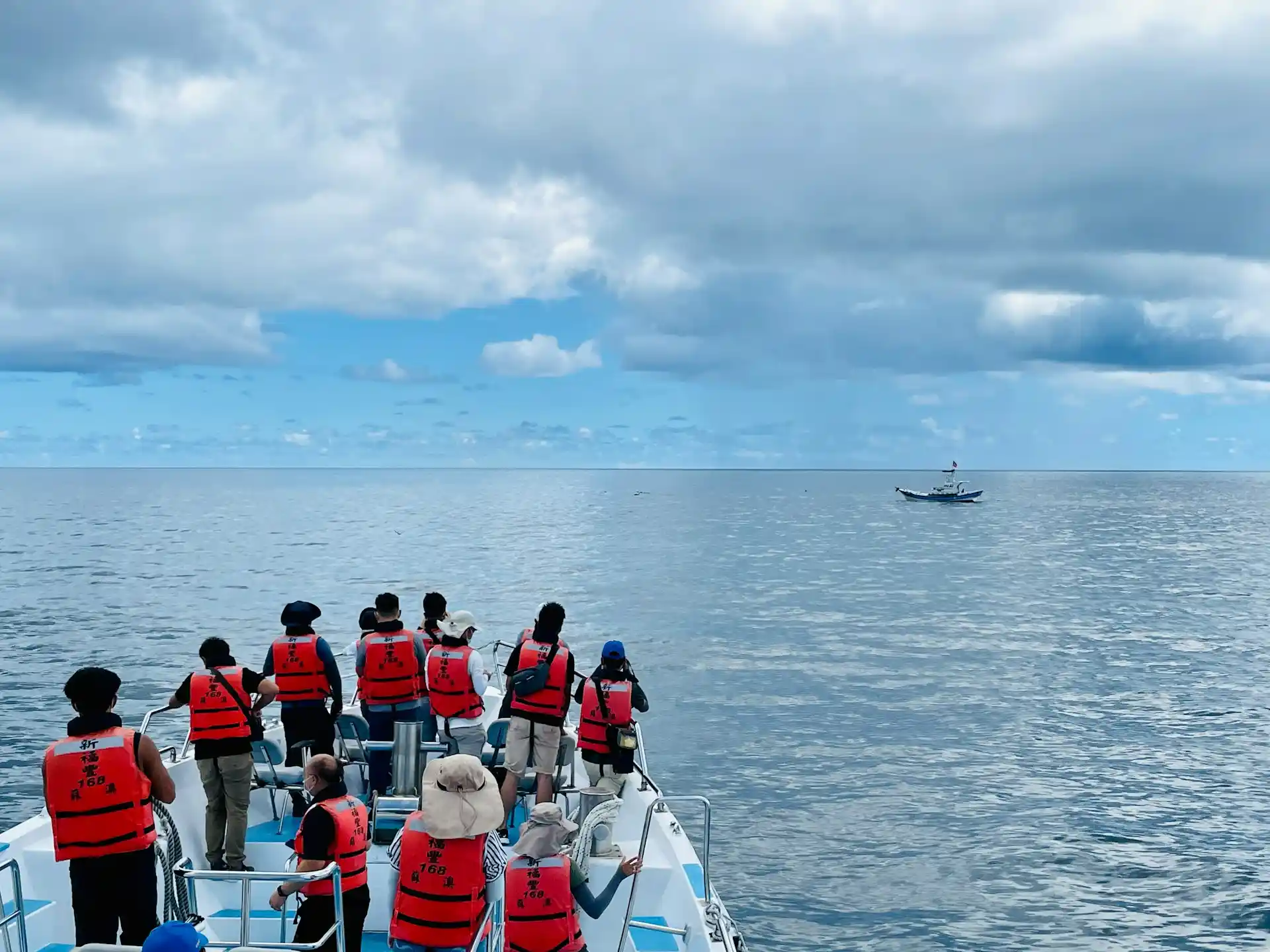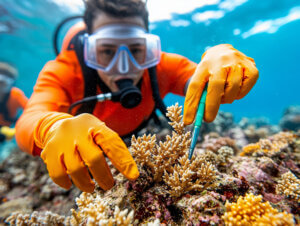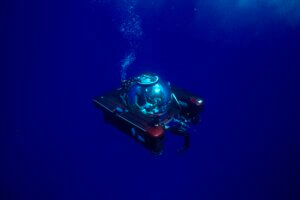What Are the Benefits of Ocean Research Volunteer Opportunities?
If you have ever wondered what are the benefits of ocean research volunteer opportunities, you are not alone. Around the globe, individuals are becoming increasingly passionate about oceans the mysterious blue frontier that covers more than 70% of our planet. From climate change to biodiversity protection, oceans play a vital role in Earth’s survival. But protecting and studying them isn’t a task that governments or scientists can do alone. Volunteers play a powerful role in advancing ocean research.
This blog provides a deep dive into what are the benefits of ocean research volunteer opportunities, why they matter for individuals and society, and how they contribute to marine conservation, personal growth, and global collaboration.
1. Understanding Ocean Research Volunteer Opportunities
Before we explore what are the benefits of ocean research volunteer opportunities, it’s essential to define what they are. Ocean research volunteering involves individuals giving their time and skills to assist marine scientists, NGOs, or academic institutions.
Opportunities may include:
-
Assisting in marine biology fieldwork such as coral reef surveys.
-
Collecting data on ocean pollution and microplastics.
-
Participating in citizen science projects like tracking marine mammals.
-
Helping with public education and awareness campaigns.
-
Supporting data entry and research analysis remotely.
Volunteers are not always scientists themselves they come from diverse backgrounds, yet they contribute meaningfully to global ocean research efforts.
2. Why Volunteering Matters in Ocean Research
To understand what are the benefits of ocean research volunteer opportunities, we need to look at why volunteering matters at all.
-
Expanding Research Capacity: Ocean ecosystems are vast. Without volunteers, many data collection projects would be impossible.
-
Cost-Effective Support: Research projects often run on tight budgets. Volunteers provide additional manpower without heavy financial burden.
-
Public Engagement: Volunteering connects everyday citizens to science, turning passive awareness into active contribution.
-
Education for All: It offers non-scientists a chance to learn and engage with cutting-edge marine research.
3. Personal Benefits of Ocean Research Volunteer Opportunities
When asking what are the benefits of ocean research volunteer opportunities, personal growth is a central answer.
3.1 Hands-On Learning
Volunteers gain first-hand exposure to scientific methods, data collection techniques, and marine ecosystems. This practical experience often goes far beyond what books or classrooms can provide.
3.2 Skill Development
Whether it’s scuba diving, GIS mapping, species identification, or teamwork, ocean volunteering sharpens technical and soft skills.
3.3 Career Advancement
For students or early-career professionals, volunteering builds strong resumes and opens doors to marine science jobs.
3.4 Personal Fulfillment
Many volunteers describe their experience as life-changing. The satisfaction of contributing to ocean health creates a sense of purpose.
3.5 Cultural Exchange
Ocean volunteering projects often attract international participants, giving people the chance to connect globally.
4. Environmental Benefits
A key reason people ask what are the benefits of ocean research volunteer opportunities is because of their environmental impact.
-
Marine Conservation: Volunteers help track endangered species, restore coral reefs, and monitor fisheries.
-
Pollution Reduction: Many projects involve beach clean-ups, data collection on plastics, and awareness drives.
-
Climate Action: By monitoring sea-level rise, ocean acidification, and temperature changes, volunteers contribute to climate science.
-
Habitat Restoration: Activities like mangrove planting and seagrass restoration protect coastlines and biodiversity.
Volunteers are essentially the backbone of grassroots marine conservation.
5. Societal and Community Benefits
Exploring what are the benefits of ocean research volunteer opportunities also highlights their social value.
-
Public Awareness: Volunteers return home as ambassadors for ocean conservation, spreading awareness in their communities.
-
Local Economies: Volunteer programs often boost eco-tourism, supporting coastal communities financially.
-
Youth Engagement: Students who volunteer often inspire peers to care about oceans.
-
Policy Support: Citizen-gathered data helps policymakers make better decisions about fisheries, pollution, and coastal development.
6. Global Collaboration and Cultural Impact
Another benefit when asking what are the benefits of ocean research volunteer opportunities is the way they foster global collaboration.
-
Volunteers often work alongside international researchers.
-
Cross-cultural teams develop creative solutions to shared challenges.
-
Indigenous and local knowledge is incorporated into science.
-
Networks formed through volunteering can last a lifetime, shaping global marine research.
7. Real-Life Examples of Volunteer Contributions
To truly appreciate what are the benefits of ocean research volunteer opportunities, consider a few examples:
-
Coral Reef Monitoring in the Caribbean: Volunteers help collect reef health data used by governments for marine protected areas.
-
Sea Turtle Conservation in Costa Rica: Volunteers protect nesting turtles and hatchlings from poachers, directly increasing survival rates.
-
Plastic Pollution Surveys: Citizen scientists collect beach data that informs global reports on marine litter.
-
Whale Watching Data Collection: Tourists record whale sightings, adding to scientific knowledge of migration patterns.
These stories prove that volunteer involvement is far from symbolic it has measurable impact.
8. Challenges of Volunteering
A balanced discussion of what are the benefits of ocean research volunteer opportunities must also note challenges:
-
Costs for Volunteers: Some programs charge fees to cover accommodation and research expenses.
-
Training Needs: Volunteers often require preparation before meaningful participation.
-
Short-Term Engagement: Brief volunteer trips may limit long-term impact.
-
Ethical Considerations: Programs must ensure volunteers do not unintentionally harm ecosystems.
Despite these challenges, the benefits overwhelmingly outweigh the drawbacks when programs are well-structured.
9. How to Get Involved
For anyone inspired by learning what are the benefits of ocean research volunteer opportunities, here are some steps to get started:
-
Identify Your Interests: Do you want to focus on marine animals, coral reefs, pollution, or education?
-
Research Organizations: Look for reputable NGOs, universities, or conservation programs.
-
Check Requirements: Some projects need diving certifications, while others only require enthusiasm.
-
Consider Costs: Some are free, while others ask for contributions.
-
Commit to Learning: Go in with an open mind and willingness to help.
10. Future of Ocean Research Volunteering
Looking ahead, what are the benefits of ocean research volunteer opportunities will only grow in importance.
-
Technology Integration: Mobile apps and drones are making citizen science more powerful.
-
Youth Engagement: Schools and universities are promoting volunteer opportunities as part of curricula.
-
Policy Relevance: Governments are increasingly recognizing volunteer-collected data.
-
Global Impact: With ocean health linked to climate change, more volunteers are needed to protect our future.
So, what are the benefits of ocean research volunteer opportunities? They are vast and meaningful — for individuals, communities, science, and the planet. Volunteers gain skills, experiences, and personal growth, while society benefits from stronger conservation efforts, global collaboration, and public awareness.
In a world where oceans face unprecedented threats, volunteers are not just helpers they are essential allies in safeguarding marine ecosystems.
If you are searching for purpose, passion, and a way to make a difference, ocean research volunteering might be the opportunity of a lifetime.
FAQs
What are the benefits of ocean research volunteer opportunities for students?
Students gain career experience, practical research skills, and global networking opportunities.
Do I need to be a scientist to volunteer in ocean research?
No, many programs welcome people from all backgrounds as long as they are enthusiastic and committed.
How do ocean research volunteers contribute to conservation?
They collect data, assist in habitat restoration, monitor wildlife, and raise awareness about marine issues.
Are ocean research volunteer opportunities expensive?
Some are free, while others charge fees to cover accommodation, food, or project costs. Scholarships may be available.
Can volunteering in ocean research lead to a career?
Yes, many professionals in marine biology, policy, and conservation began their careers through volunteering.




